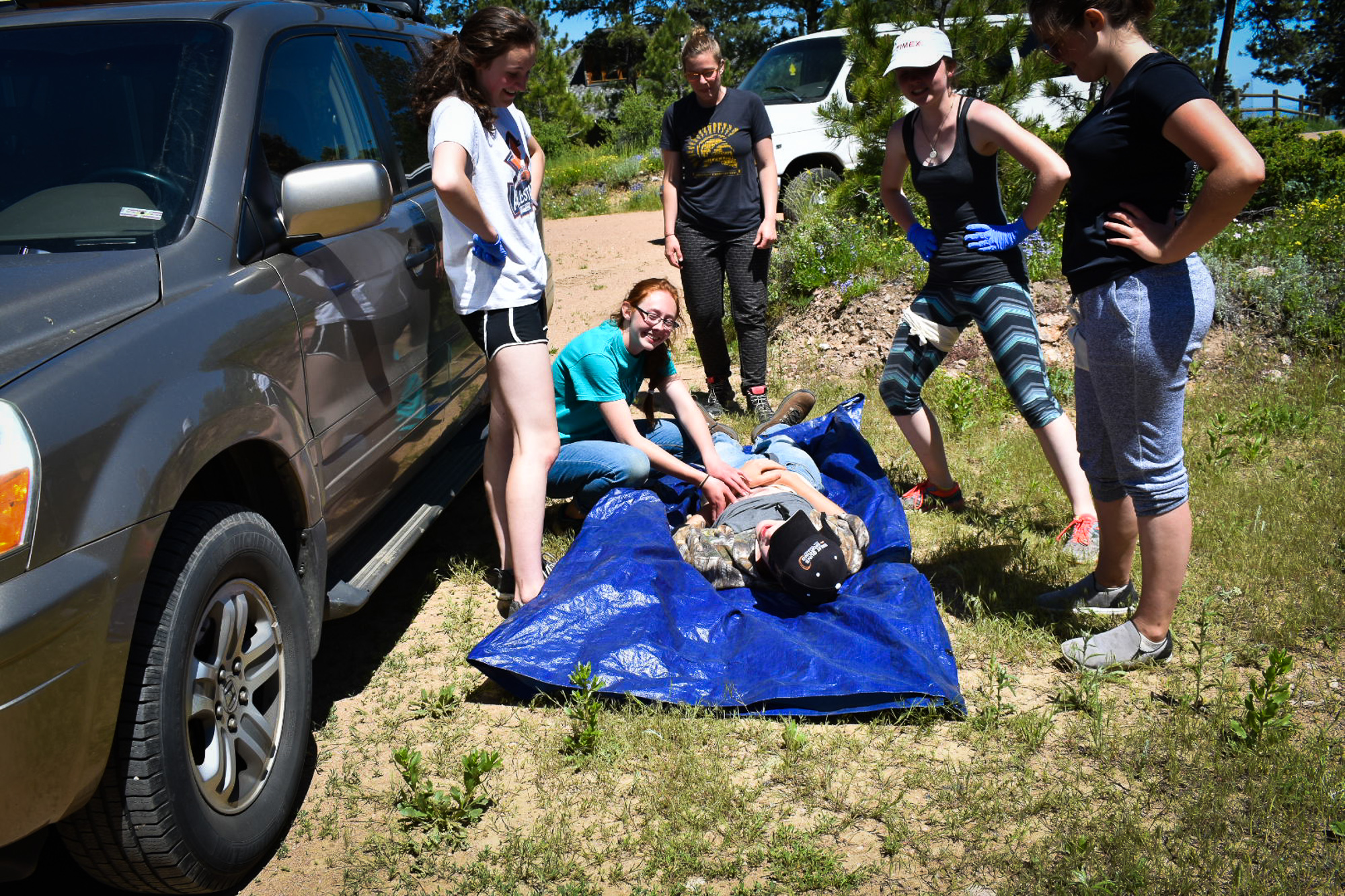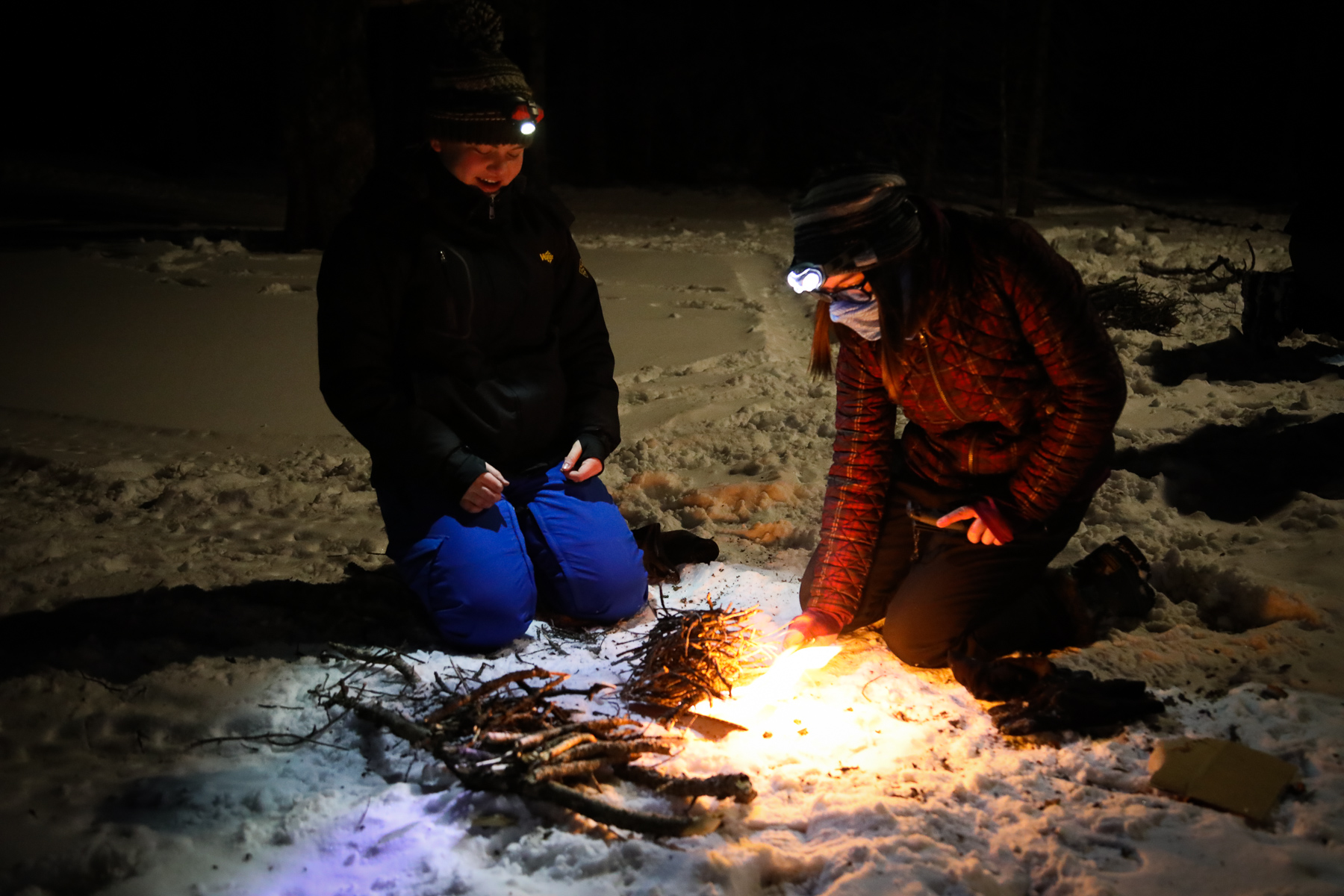Student Ambassadors
The Student Ambassador program was designed to cultivate leaders. Student Ambassadors serve as Ridgeview’s vanguard, offering support and encouragement to the current community.
+ Becoming an Ambassador
How do I become a Student Ambassador? This program utilizes a nomination and selection process. Students must be nominated by faculty members and undergo an interview process in order to become eligible for this program.
What do we look for in our Ambassadors? The short answer is that it cannot be reduced to a single quality. In our Student Ambassadors, we seek qualities of gratitude, humility, sincerity, good cheer, and perseverance. We look for evidence of a diversity of experiences, humility, curiosity, and a willingness to sacrifice good grades for a great education if need be. We look not only for evidence of athleticism, but for a balanced life. We look for work experience, a history of initiative, for good character, and for evidence that they would have the time to commit to this program.
Do Student Ambassadors enjoy any perks? Yes! There are several perks for Ambassadors, such as free dress days, special gear with the signature Ambassador logo, a letter of commendation in their student file, and a luncheon, but there are also many responsibilities.
What are the duties of Student Ambassadors? Student Ambassadors attend meetings, do reading, attend special field trips, interact more with the community, take courses in etiquette and protocol, speak publicly, host prospective families and students, attend retreats, spend more time outdoors, and have their names inscribed on the walls upstairs. It is our hope that our Ambassadors serve as Ridgeview’s vanguard and work to encourage other students to apply in the future.
+ About the Logo
The Student Ambassador logo was an attempt to pack more meaning into a single image. There are several components: the shield that acts as the background, the helmet, the swords, the Hebrew words, the Greek words, the Latin words, and the name of the school.
The shield itself is a rendition of Achilles’ shield, the construction of which is described at length in Homer’s Iliad. Thetis brings what is described as an indestructible shield to Achilles from the god of fire on Mount Olympus. It is precisely that indestructibility that is most important. We wish to protect those things which appear upon the face of the shield. We live in a world that neither appreciates nor acknowledges the values Ridgeview stands for. If concepts such as honor, virtue, arête, eudemonia, truth, goodness, or beauty are to have any future or favor, students must be taught to defend them. We are beyond naïve if we believe that the world will weave these values into the moral relativism that forms the fabric of what we can only very loosely call a society.
To this end the Spartan helmet is more fitting than the Hoplite one. It does double duty by first paying tribute to the current Ridgeview logo and then by paying tribute to what many of America’s Founding Fathers took to be an inspiring example. Samuel Adams has described the struggling colonies and the fledgling American Republic as a “Christian Sparta,” and it was John Taylor in 1814 who would contrast the “virtues of the landed aristocracy of Sparta with the vices of the British commercial elite.” Moreover, it was none other than Thomas Jefferson who, celebrating the courage of King Leonidas and the Spartans at Thermopylae, compared the “inane question of which American contributed the most to the American Revolution with the question, “Who first of the three hundred Spartans offered his name to Leonidas?”
The Hebrew words surrounding that helmet are taken from Exodus wherein it is written that God provided man with wisdom, knowledge, and understanding. We should hope that he did, but we should hope also that education is capable of revealing these gifts. More likely is that education is capable of conveying knowledge, and that a person can be persuaded to do the hard work necessary to understand, and that with enough experience, they can attain a degree of wisdom. That journey begins at places like Ridgeview, and the words remaining in Hebrew is intentional for the following reason.
Ridgeview teaches Latin and Greek. The Greek words across the top should be familiar to every student as they are taken from Aeschylus’ Agamemnon and mean that “we learn by suffering.” To paraphrase Sir Thomas More rather figuratively, none of us gets to heaven on a featherbed. None of us achieves a meaningful life without hard work and some degree of sacrifice. The Latin, another classical language that Ridgeview not only teaches, but celebrates as integral to its cultural capital, states clearly what Ridgeview is dedicated to: truth and virtue; and as importantly, what it is not dedicated to: utility or popularity. Too many schools compromise themselves because they are dedicated to these evanescent values, which is akin to what separates philosophy from sophistry. At Ridgeview, we strive to be philosophers because we put truth before persuasion, as difficult as that frequently makes our lives. Hebrew is not often enough considered a classical language, and it is not one that we teach in our school, but it is central to our cultural inheritance. There is a good reason that James Madison and others spent the considerable amount of time studying it that they did, and it draws upon the premise that the Western inheritance is comprised of three parts: the Ancients, the Christians, and the Enlightenment. The Ancients have been fairly represented in the logo thus far, but the Christian element should be as well, no more for the devout than the secular because without this inheritance, the notion that we are equal, let alone “created equal,” is ludicrous, and without it, all that follows in our history is little more than a very dark joke.
That egalitarian notion, which we have grown so comfortable with, requires a vigilant defense. Any institution aiming to defend it, let alone one proposing to cultivate students capable of defending it, must recognize that they stand upon a war footing with the world around them. Thus the logo incorporates a pair of swords crossed and upturned, which have historically been used in heraldry and other symbolic works to indicate a preparedness to fight. If they were downturned, they would indicate either death or peace. We are not at peace with the world. Ridgeview stands ready to fight for permanent things, even if all that can be achieved by fighting is to inspire our descendants to regain lost ground and provide the world with “an example of a great people, who in their civil institutions hold chiefly in view, the attainment of virtue, and happiness among ourselves.”
Student Ambassador Trips
The Student Ambassadors complete several trips during the course of each year. Trips have included Wilderness First Aid, Ice Climbing, and Yurts. The purpose of these trips is to provide wilderness skills in a variety of weather situations so that students may improve their outdoor skills, bond as a group, and serve as knowledgeable peers on field trips school-wide.

























